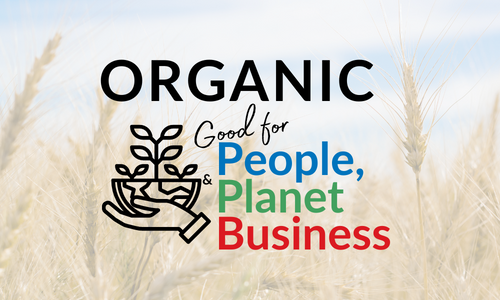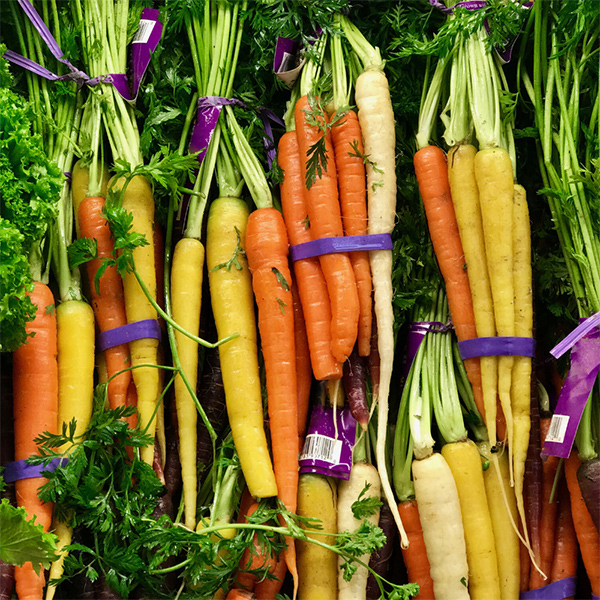
A recent survey completed by Ketchum, a global communication consultancy group, has provided insight into the food and purchase behaviors of the newest generation of household purchasers, Generation Z. Gen Z, or individuals born between 1997 and 2012, are increasingly influencing the food market through independent purchases and by informing household food purchases. 68% of Gen Z report that they cook differently than their parents, with 53% trying new cuisines and 55% reporting they prepare a meal using only snacks. This generation has grown up in an “always on” culture with 24/7 access to the internet and social media via smartphones and other wearable technologies. This access has significantly impacted their means of interaction and, according to the survey, 70% of them cite social media influencers as the way they get information about food content.
Gen Z, like their Millennial predecessor generation, is acutely aware of financial pressures and the need to address global threats such as climate change, social equality, and geopolitical conflicts. These influences have molded them to be highly aware of societal issues and environmental concerns; the Ketchum report found that 76% of Gen Z say that sustainability is important for food purchases, 51% of them care about the environment and climate change issues, and 72% think the food system is broken. This acute awareness of global issues has had a profound impact on this group and 63% of them cite that they feel too much pressure to “change the world” with their behaviors.
What can the organic industry take away from this insight into Gen Z?
One of the most cited challenges reported by companies marketing to organic consumers is that it can be difficult to educate about what the USDA organic label means since it represents a comprehensive standard addressing a wide range of issues ranging from pesticide- and GMO-free, animal welfare standards, ingredient limitations in processed goods, and agricultural concepts addressing carbon sequestration, soil biodiversity and microbial activity, cover cropping, and more. In short, the USDA organic label isn’t always the simplest label to communicate to consumers. So, what does this mean in relation to Gen Z? As we learned from Ketchum’s survey, Gen Z is acutely aware of the challenges that society is facing today with climate change and environmental issues; so much so that they are reporting high levels of anxiety about their behaviors needing to change the world. As informed and environmentally conscious consumers, they likely already know the reasons why organic food is needed. What organic companies may want to spend their time reinforcing to Gen Z is how simply choosing organic can be an easy way to help change the world; thereby relieving them of some of the anxiety about the fate of the world resting solely on their generation. To put it simply, organic products offer an accessible contribution to efforts to save the world.
While Gen Z may be painfully aware of the challenges for society and the environment and their need to personally address these issues, the survey also found that their actual eating habits differ significantly from what they say versus what they purchase and consume. The survey showed that 76% of Gen Z used sustainability as an “important factor in making a food purchase,” however, only 16% said that they looked for sustainably sourced ingredients when they make food purchases. More drastically, with respect to animal welfare, 72% say they look at animal welfare when choosing foods, but only 5% reported that animal welfare informs their eating habits. What conclusions might we draw from these large discrepancies? A 2023 survey completed by Deloitte states that Gen Z, along with millennials, were greatly impacted by financial pressures stemming from the pandemic, encountering rapid inflation challenges, and significant increases to the overall cost of living. Additionally in relation to sustainability, Gen Z reported in the Deloitte survey that while they know the importance of sustainability and minimizing their impact on the environment, they “think it will become harder or impossible to pay more for sustainable products if their economic situation remains the same.”
While these surveys provide us some mixed messages about how to appeal to Gen Z, the overall good news for the organic industry is that Gen Z is hyper-aware of the importance of choosing sustainable products and making a difference through their food and goods purchases. The more challenging takeaway from these surveys is addressing the chasm between expressed values (sustainability, social and animal welfare, climate change) and their actual purchasing and eating behaviors. A consistent finding in both surveys is how anxious and stressed Gen Z is on all topics ranging from finances, food, environment, and social media. Given this anxiety, one potential strategy for producers of organic products is to emphasize how the simple act of choosing organic is good for the planet, people, and economy. A simple message to minimize the foreboding feeling that it is their generation’s job to solve the world’s problems. Organic products, and the systems and companies that produce them, have the capacity to change the world. Gen Z, we got you. Go ahead and check this one off your to-do list!
By Joelle Mosso, Sr. Director of Regulatory and Technical Affairs
References:
https://www.prnewswire.com/news-releases/gen-zs-relationship-with-food-i...
https://www.pewresearch.org/short-reads/2019/01/17/where-millennials-end...
https://www2.deloitte.com/ua/en/pages/about-deloitte/press-releases/delo...












